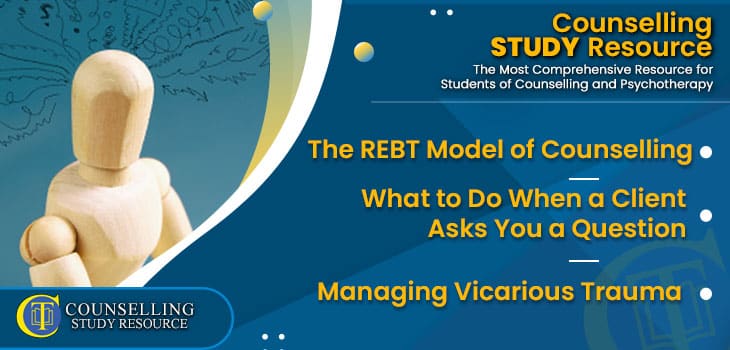See Counselling Skills Used in Real Sessions by Qualified Therapist
Real Sessions – Real Presentations – Real Skills
Gain the competence and confidence to use counselling techniques effectively!

In Episode 232 of the Counselling Tutor Podcast, your hosts Rory Lees-Oakes and Ken Kelly are back with this week’s three topics:
Albert Ellis’ REBT Model
In this section, Rory and Ken discuss Rational Emotive Behavioural Therapy (REBT).
The key points of this section include:

Real Sessions – Real Presentations – Real Skills
Gain the competence and confidence to use counselling techniques effectively!
Knowing what to do when a client asks you a question can be difficult, and in this section, Rory and Ken discuss how they might navigate this.
The main points of this section are as follows:

On-demand access to a rich lecture library covering theory, skills, and professional development for counselling students—Mapped to the UK awarding body criteria
“The Student Library has been BRILLIANT, I can’t recommend it enough!
It has been a lifeline in helping me prepare for practice and my first clients. If you’re considering it, go-for-it, it’s absolutely worth it!”
Kelly – Graduated and now in practice.
Managing Vicarious Trauma [starts at 40:25 mins]
In this week’s ‘Practice Matters’, Rory speaks with Erene Hadjiioannou about the impacts of vicarious trauma and ways of managing it.
The key points of this discussion include:
Albert Ellis’ REBT Model

Get on-demand Certified CPD that is implementable in your practice
